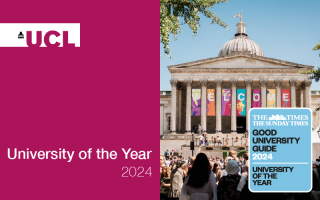Supervisors: Dr Matthew Buckland, Dr Alexandra Kreins
Background:
The thymus is necessary for the development of a competent immune system with central tolerance to self-antigens. Athymia, congenital absence of the thymus, is usually fatal in the first two years of life. The only definitive treatment for athymic patients is allogeneic thymus transplantation [1,2]. Great Ormond Street Hospital (GOSH) is one of only two thymus transplantation centres worldwide. Thymus tissue, removed during surgery to correct a congenital heart defect in an otherwise healthy infant (the donor), is cultured to achieve lymphodepletion before transplantation into an athymic patient (the recipient). Currently, donor and recipient are not matched for major histocompatibility complex (MHC) antigens. We hypothesise that the lack of MHC-matching contributes to suboptimal immune reconstitution and common autoimmune complications after thymus transplantation.
Aims/Objectives:
The general aim of this translational research project is to investigate whether partial MHC-matching of donor and recipient improves outcome after thymus transplantation. In addition to clinical outcome, T cell antigen specific responses and MHC restriction will be measured as surrogate markers of immune reconstitution and autoimmunity [3].
Objective 1: During the culture period, thymus sections are irrigated regularly and the culture media is a rich source of donor T cells and antigen presenting cells (APCs). A biobank of donor immune cells will be generated. These will be cryopreserved for subsequent MHC restriction studies.
Objective 2: Allogeneic mixed lymphocyte reactions (MLR) between donor APCs and recipient T cells will be developed [4]. Assays for antigen specific responses to recall antigens such as tetanus toxoid and explore the potential for responses to viruses which the patient is known to have been exposed to, need to be established. The response to self-antigens such as thyroid peroxidase will also be examined.
Objective 3: The MHC restriction of these responses in CD4+ and CD8+ T cells in thymus transplant recipients will be assessed. The difference in magnitude of response between patients with and without significant partial MHC-matching will be analysed.
Objective 4: Using the optimised assays, the antigen-specific suppressor capacity of regulatory T cells in transplanted patients will be examined [5].
Methods:
Patient recruitment and material: This project will have access to a unique cohort of historic and prospective patients with congenital athymia, who are referred to GOSH’s thymus transplantation programme. Long term follow up includes collection of recipient PBMCs at around 18-24 months post-transplantation, when immune reconstitution has occurred and after immunisation with the appropriate antigens. Donor recruitment and material: Donors with partial MHC matching, ideally at both class 1 and 2 loci, will be identified. PBMCs from leukapheresis cones and thymus culture effluent will be cryopreserved. In vitro MLR assay: CD14+ donor cells will be isolated and differentiated into dendritic cells (DC) to be pulsed with specific peptides. Activated DCs will be cocultured with recipient T cells. Different techniques to assess T cell response, including expression of activation markers by flow cytometry, IFN-gamma production by ELISPOT/ELISA and T cell proliferation by CFSE dilution will be compared.
References:
1. Davies EG et al. Thymus transplantation for complete DiGeorge syndrome: European experience. J Allergy Clin Immunol 2017; 140:1660-70.
2. Markert ML et al. Review of 54 patients with complete DiGeorge anomaly enrolled in protocols for thymus transplantation: outcome of 44 consecutive transplants. Blood 2007; 109(10):4539-47.
3. Collado et al. The repertoires of peptides presented by MHC-II in the thymus and in peripheral tissue: a clue for autoimmunity? Front Immunol 2013; 4:442.
4. Mehrotra A et al. Monitoring T cell alloreactivity. Transplant Rev (Orlando) 2015; 29(2):53-9
5. Chinn IK et al. Thymus transplantation restores the repertoires of forkhead box protein 3 (FoxP3)+ and PoxP3- T cells in complete DiGeorge anomaly. Clin Exp Immunol 2013; 173(1):140-9.
 Close
Close



